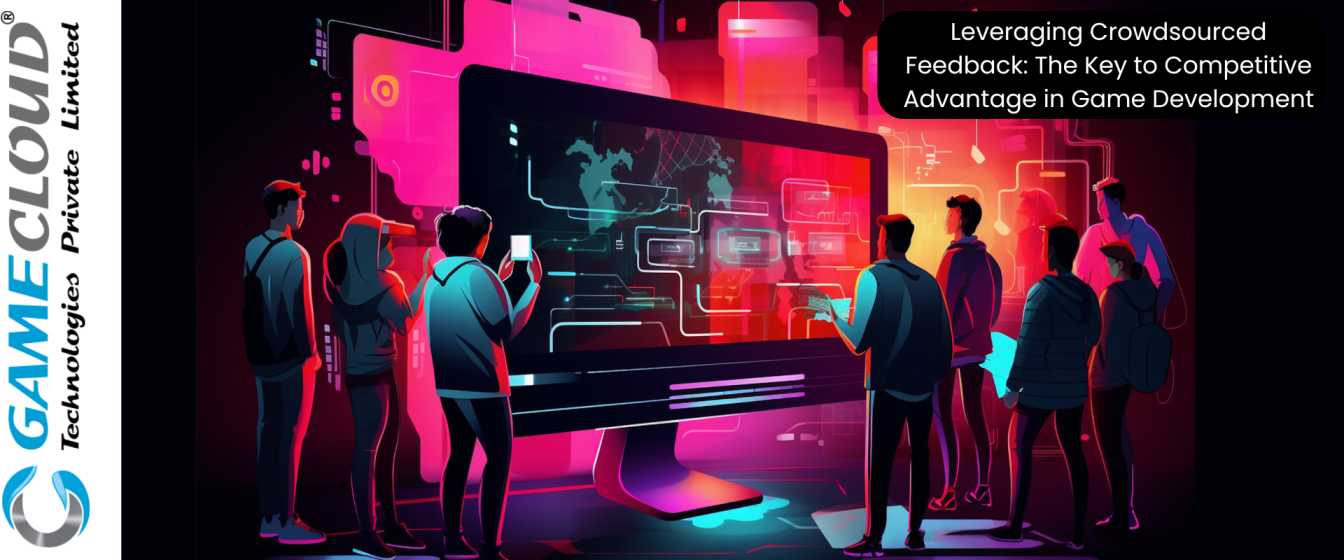
In today’s competitive gaming industry, feedback plays a pivotal role in shaping the success of game development. Traditionally, developers relied on in-house teams and limited test groups to refine their games, but this approach has evolved significantly with the rise of crowdsourcing. Crowdsourced feedback involves gathering insights and opinions from a large pool of players during various stages of development, from beta testing to full release. This method has proven to be highly effective, as it allows developers to capture a wider array of perspectives and make data-driven improvements to gameplay, graphics, and overall user experience.
According to recent research, games that integrate community feedback have a 30% higher retention rate compared to those that don’t, demonstrating the value of engaging with players directly. Crowdsourcing not only accelerates the development process by identifying and fixing issues early but also fosters a sense of ownership among players, giving developers a competitive edge in a rapidly evolving market.
This collaborative feedback model has become a game-changer, allowing developers to stay ahead of trends, deliver more engaging content, and build loyal communities around their games.
Crowdsourced Feedback: A Game Developer’s Secret Weapon
Crowdsourced feedback in game development refers to collecting opinions and suggestions from a large group of players during various stages of game creation. This process is most commonly utilized during early access phases, beta testing, and through online communities like forums, social media platforms, or dedicated feedback portals. By involving players early on, game developers can identify issues, gain insights into gameplay mechanics, and make improvements based on real user experiences.
This feedback is incredibly valuable because it provides developers with real-time data from diverse players, representing a variety of gaming preferences and skill levels. Furthermore, crowdsourced feedback allows developers to quickly fix bugs, balance gameplay, and create more player-centered experiences, ultimately giving them a competitive advantage in the market by aligning game features with player expectations.
Turning Feedback into Competitive Advantage
Integrating player feedback early in game development helps developers craft more engaging, player-centric games. By listening to players’ preferences and addressing their concerns, developers can fine-tune gameplay mechanics and enhance overall satisfaction. This player-focused approach fosters a deeper connection with the game, which translates into long-term loyalty.
Crowdsourced feedback also enables developers to stay ahead of competitors by identifying emerging trends, spotting potential issues, and adjusting game features accordingly. It allows developers to remain agile, quickly adapting to changes in player preferences and avoiding pitfalls.
Additionally, positive word-of-mouth and active community involvement drive brand reputation. When players see their feedback leading to real improvements, they are more likely to recommend the game, boosting both retention and acquisition. Using analytics tools to sift through large volumes of feedback efficiently allows developers to prioritize critical changes, turning crowdsourced insights into a strategic advantage in a competitive industry.
Game, Play, Win: How Gamerthrong Reward Your Passion for Gaming
At GamerThrong, we offer gamers the unique opportunity to play and test unreleased games across various platforms, including PC, mobile, and VR. By providing valuable feedback, players help developers refine their games before launch, creating a more engaging experience. As a reward, our players earn in-game currency, exclusive merchandise, and even cash. The more they participate, the more EXP points they accumulate, which unlocks additional benefits and recognition. We aim to bridge the gap between gamers and developers through collaboration and rewarding engagement.
Conclusion
In conclusion, crowdsourced feedback can significantly transform a game’s development by ensuring it meets player expectations, resulting in greater market success. Engaging players from the beginning allows developers to refine gameplay, fix issues early, and align features with player preferences, ultimately providing a strong competitive edge in the gaming industry.
For Know More Contact-Now
FAQ: Leveraging Crowdsourced Feedback: The Key to Competitive Advantage in Game Development
1. What is crowdsourced feedback in game development?
Crowdsourced feedback involves gathering insights and opinions from a large group of players throughout various stages of game development, such as during beta testing and early access. This approach allows developers to capture a wide array of perspectives, enabling them to make data-driven improvements to gameplay, graphics, and overall user experience.
2. How does crowdsourced feedback improve the game development process?
Integrating crowdsourced feedback helps developers identify issues early in the development cycle, as players provide real-time insights based on their experiences. This feedback allows developers to quickly fix bugs, balance gameplay, and create more player-centered experiences, ultimately enhancing game quality and increasing player satisfaction.
3. What are the benefits of using crowdsourced feedback for game retention?
Games that actively incorporate player feedback have been shown to achieve a 30% higher retention rate compared to those that do not. By involving players in the development process, developers foster a sense of ownership among the community, leading to deeper connections with the game and increasing the likelihood of players recommending it to others.
4. How can developers turn crowdsourced feedback into a competitive advantage?
Developers can leverage crowdsourced feedback to stay ahead of market trends and player preferences. By listening to player concerns and making necessary adjustments, developers can create engaging, player-centric games. Additionally, positive word-of-mouth generated from active community involvement can enhance brand reputation and drive both retention and acquisition.
5. How does GamerThrong facilitate the process of providing crowdsourced feedback?
GamerThrong connects gamers with opportunities to play and test unreleased games across various platforms. By providing valuable feedback, players help developers refine their games before launch. Participants earn rewards such as in-game currency, exclusive merchandise, and cash, while accumulating experience points that unlock additional benefits and recognition. This platform fosters collaboration between gamers and developers, enhancing the overall gaming experience.
